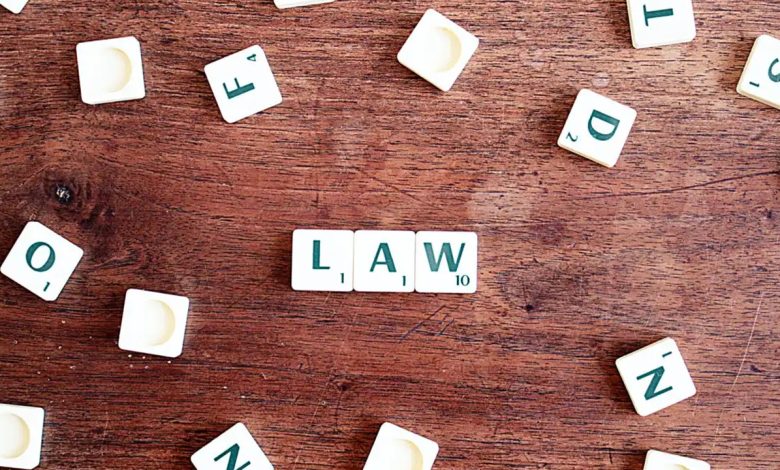Daily Current Affairs for UPSC
Unlawful Activities Prevention Act (UAPA)
Syllabus- Internal Security [GS Paper-3]

Context- The Supreme Court’s three-judge bench clarified that the draconian Unlawful Activities Prevention Act (UAPA) holds anyone who “is or continues to be” even a “mere member” of a banned organization criminally liable for acting against India’s sovereignty and integrity.
Key Highlights
- The judgment alluded to Area 10(a)(i) of the UAPA which manages enrollment of an unlawful affiliation. “Where an association is declared unlawful by a notification issued under Section 3 which has become effective under sub-section (3) of that section,—(a) a person, who—(i) is and continues to be a member of such association shall be punished with imprisonment for a term which may extend to two years, and shall be liable to fine,” reads the provision.
- The court clarified that under Section 10(a)(i) of the UAPA, individuals who had left the organization but were not members at the time it was declared illegal cannot be held liable.
- Section 10(a)(i) fulfilled the UAPA’s goal of effectively preventing terrorism and illegal activities.
- A person’s membership in such an illegal association should be punished in order to effectively prevent illegal activities.
- As part of the fundamental right to free speech, citizens’ ability to form associations or unions was not harmed by Parliament’s wise formulation of Section 10(a)(i). In order to safeguard the nation, it was a reasonable restriction.
- The court cited Article 19(4), which stated that the state had the authority to enact laws imposing “reasonable restrictions” on citizens’ rights to form unions or associations in the interests of India’s sovereignty and integrity, public order, or morality.
About Unlawful Activities Prevention Act (UAPA)
- In 1967, it was passed.
- The Act includes, among other things, special procedures for dealing with terrorist activities.
- Unlawful movement implies any lead which comprises wrongdoing or which repudiates any regulation whether such direct happened previously or after the beginning of this Demonstration and whether such lead happened in the Republic or somewhere else.
- The term “terrorist act” is defined in Section 15 of the UAPA and carries a sentence of up to life in prison. On the off chance that the psychological militant demonstration brings about death, the discipline is passing or detainment forever.
- The Demonstration allocates outright capacity to the focal government, via which in the event that the Middle considers an action as unlawful, it might, via an Authority Paper, proclaim it so.
- The arrangements of this Act apply likewise to —
- a) residents of India outside India;
- b) people who work for the government, no matter where they are; and
- c) individuals aboard ships and aircraft that are registered in India, no matter where they may be.
Problems with UAPA
- Criminalizing Thoughts: It condemns simple contemplations and political fights that reason “irritation” with the state. It violates not only the individual right of citizens to express themselves, but also the collective right of groups and unions to communicate their opinions.
- Disregarding Fundamental Rights: It can be used to circumvent procedures and fundamental rights. Under the UAPA, for instance, those arrested can be held without a charge sheet for up to 180 days. As a result, it directly contravenes Constitutional Article 21.
- Totally Unpredictable: It gives the government a lot of discretionary power and allows for the establishment of special courts that can use secret witnesses and hold hearings behind closed doors.
- Preventing opposition: By intimidating and harassing dissidents, it is being used to suppress dissent, jeopardizing public debate and press freedom as well as criminalizing the exercise of civil liberties.
- Parliamentary Powers: The question of whether the Parliament can, under any circumstances, label the individual as a terrorist solely on the grounds that it believes he is involved in terrorism without any trial whatsoever remains unanswered.
- Restricted Rights: In order to safeguard “the sovereignty and integrity of India,” the UAPA grants the parliament authority to restrict citizens’ rights and freedoms.
- Stringent Provision of bail: Under the UAPA, the court must be satisfied that the accused is not guilty of the alleged offense before bail can be granted. Because this is a prima facie standard, the burden of proof of innocence is effectively reversed, even for the purpose of obtaining bail. For the purposes of bail, the accused must demonstrate his innocence.
- Rapid Increase in Use: Given the rapid increase in the state’s use of this provision in a wide range of alleged offenses, including social media use by proxy servers in Jammu and Kashmir and tribals in Chhattisgarh, this caution is significant. and, among others, journalists in Manipur.
Way Ahead
- India requires a robust anti-terrorism law, but its implementation will always result in draconian anomalies like the arrest of activists.
- While the current UAPA contains effective provisions to combat terrorism (a cognizable offense), it also has some flaws that must be addressed in order to make the law effective in preventing and combating terrorism.
- Due to the fact that individuals spent more than a decade in prison before being acquitted, the UAPA’s potential for misuse has been realized. It is a fairly harsh law that was drafted to deal with some harsh circumstances.
- Compared to the Indian Penal Code, the UAPA gives the state more power by easing the deadlines for filing chargesheets and enforcing strict bail conditions.
- To ensure that a constitutional functionary who is independent of the Executive is in charge of sanctions for prosecutions and investigations under this Act, the Act must be amended. This could possibly be assigned to a High Court Judge.
- Political issues are always sparked by illegal and terrorist activities. In order for the Act to be effective, its implementation must always appear impartial.





.png)



